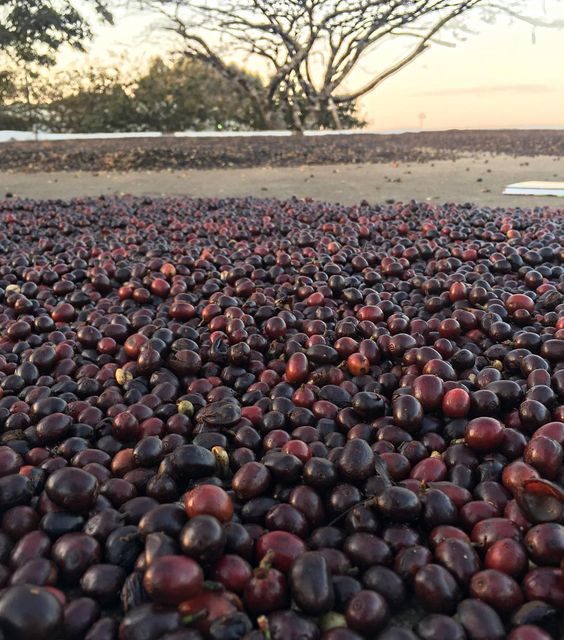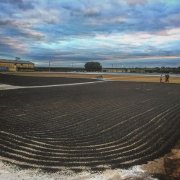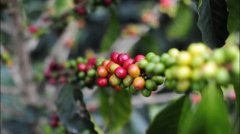Brazil COE runner-up-South Minastia Sister Manor how does Brazilian coffee taste nutty?

Professional coffee knowledge exchange more coffee bean information please follow the coffee workshop (Wechat official account cafe_style)
How to make Brazilian coffee: from a seed to a cup of coffee
Product name: 2015 Brazil COE Excellence Cup (Sunshine Group) runner-up, Tilia Sister Manor, South Minascamo Town
(Brazil Carmo de Minas Fazenda Irmas Pereira Natural)
Flavor description: balanced sweet, creamy smooth, orange fruit, apricot, etc.
Aromas of fruit, chocolate and caramel.
Award winning record:
In 2015, the second place in Brazil COE excellent Cup (suntan group) scored 92.77 points.
Country of origin: Brazil ((Brazil))
Production area: South Minas, Carmo de Minas town (Camo) area
Manor: Tilia Sister Manor (Fazenda Irmas Pereira)
Varieties: Bourbon, Acai á, Mundo Novo, Catua í and Catuca í
Grade: Nbig A
Altitude: average 1200 to 1300 m
Treatment: sun drying
Annual temperature: 23 °C
Annual rainfall: 2000 mm
Harvest time: NumberA
Introduction:
Fazenda Irmas Pereira, located in the Carmo deMinas area of Sul deMinas, was renamed "Irmas Pereira" from its predecessor Fazenda Serrado in order to avoid confusion with the name Cerrado, another manor in the area. In the 1970s, the couple Ant ô nio Andrade Pereira Filhoand Maria da Concei é ã o Costa Pereira decided to buy a 90-hectare estate and start growing coffee, when their two daughters, Maria Val é ria and Maria Ro é ria, were born at the same time. They worked with their parents for a long time to grow and produce coffee. After they got married, their husbands joined in growing coffee. When their father died, the sisters did not want to separate their property. Instead, they changed the name of the manor from Fazenda Serrado to Fazenda Irmas Pereira (English Pereira means sister) to strengthen the relationship between the two sisters.
The estate, now run by the second generation Pereira Sisters family, is located in the alpine hot spring area of South Minas, near Lambari, a small place between the town of Carmo de Minas and S ã o Louren ç o. The acreage has expanded to 300ha, with 250ha of varieties Bourbon, Acai á, Mundo Novo, Catua í and Catuca í, averaging 1200 to 1300 meters above sea level. In 2002, it won the the Cup Of Excellence BSCA (Brazil Specialty CoffeeAssociation) Award of Brazilian Fine Coffee Association. Also won the Italian national treasure Yili coffee espresso special prize (the Award of Ernesto Illy quality Coffee Espresso for the Illycaff è e) and participated in the South Minas local competition named the Competitionquality Coffees of Minas Emater-MG (Technical Assistance andRural Extension of Minas Gerais). In 2015 Brazil COE excellent Cup Suntan Group) bravely won the runner-up cup test score as high as 92.77 points, with Brazilian coffee beans to do cup test can have this score, it is very rare, we can see that its strength can not be underestimated.
There are many kinds of Brazilian coffee, and like other Arabica coffee, most Brazilian coffee is not washed but dried, and they are classified according to the name of the state of origin and the port of transport. Brazil has 21 states and 17 states produce coffee, but four of them produce the largest, accounting for 98 per cent of Brazil's total national production: Parana, SaoPaulo, Minas Gerais and Espirito Santo, with the southern state producing the most, accounting for 50 per cent of total production. Brazilian coffee is characterized by low acidity and suitable for moderately roasted beans. Brazil is vividly compared to the "giant" and "monarch" of the coffee world because it is the world's largest coffee producer. There are about 3.97 billion coffee trees there, and small farmers now grow 75% of Brazil's total coffee production. The number of coffee producers in Brazil is twice or even three times that of Colombia, the third largest coffee producer in the world. Brazilian coffee is widely grown in flat areas. In order to adapt measures to local conditions, Brazilian landlords have developed improved Arabica coffee trees that do not require highland or shade decades ago, which can be planted on plains or grasslands and directly exposed to the sun, which is different from the traditional shade cultivation at higher elevations.
.
Important Notice :
前街咖啡 FrontStreet Coffee has moved to new addredd:
FrontStreet Coffee Address: 315,Donghua East Road,GuangZhou
Tel:020 38364473
- Prev

Characteristics of Brazilian coffee beans in Brazilian Sanqiu manor with peeled sun-dried yellow bourbon coffee
Professional coffee knowledge exchange more coffee bean information please follow the coffee workshop (Wechat official account cafe_style) Brazilian coffee: from a seed to a cup of coffee completed Sanqiu Manor Fazenda Miaki Japan Sanqiu (Miaki) family moved to Brazil, coffee production has a history of 40 years, now the management of the manor to the younger generation to manage, they
- Next

Starbucks Collection Coffee-Jamaica Blue Mountain Flavor Notes Growing Area Story
Professional coffee knowledge exchange More coffee bean information Please pay attention to coffee workshop (Weixin Official Accounts cafe_style) Mavis Bank Blue Mountain NO.1, authentic Jamaica Blue Mountain legal coffee producing area Flavor notes: rich floral fragrance accompanied by citrus fruit tonality and smooth texture of chocolate Flavor description: citrus, chocolate Suitable for food pairing: sweet citrus, dark chocolate
Related
- Detailed explanation of Jadeite planting Land in Panamanian Jadeite Manor introduction to the grading system of Jadeite competitive bidding, Red bid, Green bid and Rose Summer
- Story of Coffee planting in Brenka region of Costa Rica Stonehenge Manor anaerobic heavy honey treatment of flavor mouth
- What's on the barrel of Blue Mountain Coffee beans?
- Can American coffee also pull flowers? How to use hot American style to pull out a good-looking pattern?
- Can you make a cold extract with coffee beans? What is the right proportion for cold-extracted coffee formula?
- Indonesian PWN Gold Mandrine Coffee Origin Features Flavor How to Chong? Mandolin coffee is American.
- A brief introduction to the flavor characteristics of Brazilian yellow bourbon coffee beans
- What is the effect of different water quality on the flavor of cold-extracted coffee? What kind of water is best for brewing coffee?
- Why do you think of Rose Summer whenever you mention Panamanian coffee?
- Introduction to the characteristics of authentic blue mountain coffee bean producing areas? What is the CIB Coffee Authority in Jamaica?

